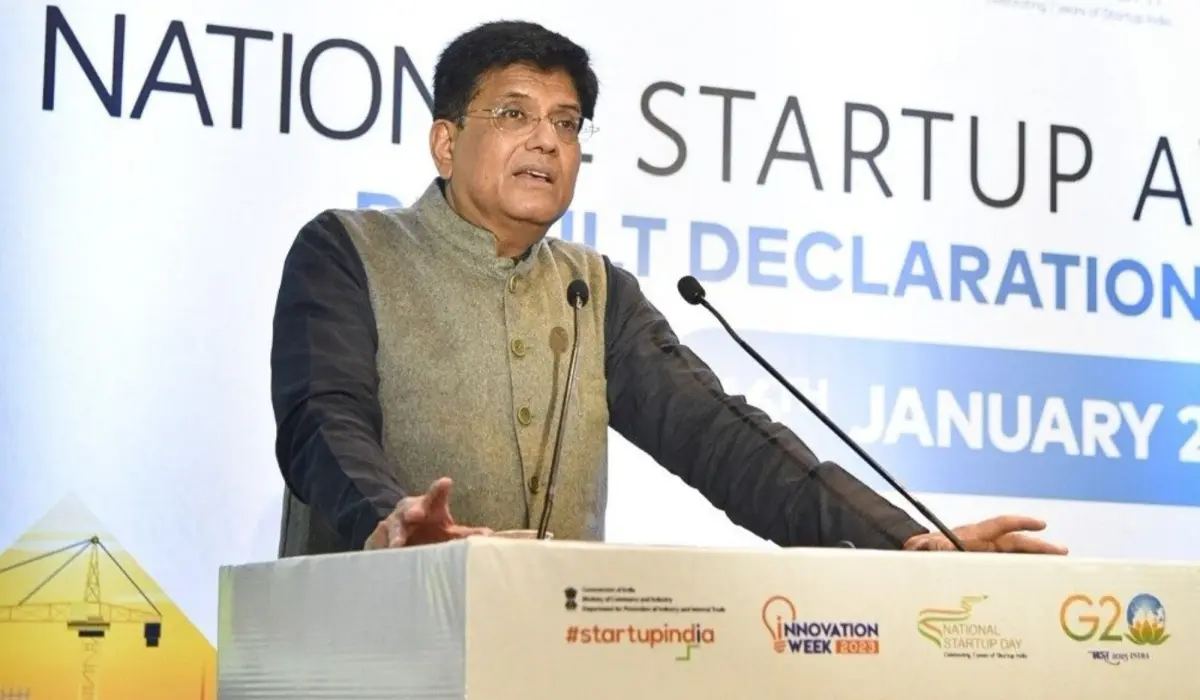STARTUP-STORIES
Indian Startups Facing Tax Implications for Reverse Flipping, Says Union Minister Piyush Goyal

SUMMARY
Union Minister Piyush Goyal's remarks underscore the importance of addressing tax implications associated with Indian startups' decisions to reverse flip, emphasizing the need for accountability and fiscal responsibility in such transitions.
The discourse surrounding reverse flipping highlights the broader challenges and opportunities within India's startup ecosystem, calling for a delicate balance between regulatory oversight and incentivizing entrepreneurial growth to foster a conducive environment for innovation and economic development.
In a recent development, Union Commerce Minister Piyush Goyal addressed concerns regarding Indian startups contemplating reverse flipping, emphasizing the tax implications associated with such moves.
According to reports from The Economic Times, Goyal expressed reservations about exempting certain companies from tax liabilities solely for returning to India. He asserted that it would be challenging to justify such exemptions, especially when startups had initially chosen to relocate abroad for their own strategic reasons, primarily centered around tax planning.
Highlighting the motivations behind startups' decisions to reverse flip, Goyal attributed their interest in returning to India to the country's robust growth story and the potential for higher valuations in the domestic market. He emphasized that startups opting to repatriate would be subject to tax obligations, which would essentially be paid from the income on which they had initially availed tax benefits.
Goyal's remarks come amidst a backdrop of several Indian unicorns contemplating relocating their headquarters back home. Notable names in this regard include Zepto, Groww, Meesho, Pine Labs, Razorpay, and Eruditus, among others.
Addressing concerns over angel taxes and valuation norms, Goyal underscored the importance of striking a balance between facilitating startup growth and preventing misuse of regulatory frameworks. He noted that while valuation norms were essential to curb malpractices, excessive regulatory leniency could potentially reintroduce issues associated with "fly-by-night companies" and illicit financial activities.
The discourse around facilitating the return of Indian startups domiciled abroad has gained momentum in recent times, particularly with companies eyeing IPO opportunities in the Indian market. However, challenges persist, with startups advocating for streamlined regulatory processes and reduced tax burdens to incentivize their relocation.
The conversation around reverse flipping gained traction following PhonePe's decision to relocate its headquarters to India, resulting in substantial tax liabilities. The fintech giant, backed by Walmart, incurred significant tax expenses amounting to $800 Mn upon separating from its parent company, Flipkart, and establishing itself as an independent entity.
As the landscape of Indian startups continues to evolve, policymakers face the delicate task of balancing regulatory rigor with fostering a conducive environment for entrepreneurial growth. The statements from Minister Goyal shed light on the complexities surrounding reverse flipping and underscore the need for nuanced policy interventions to navigate this evolving terrain effectively.
Latest News

STARTUP-STORIES








